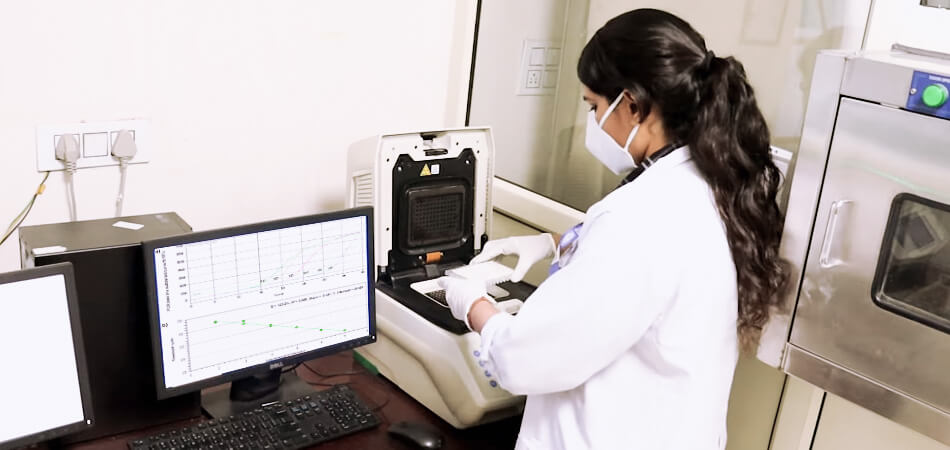
HIV (Human Immunodeficiency Virus) is a virus that attacks the immune system of the body such as the body's white blood cells, weakening the immune system, after infection makes it easier to get sick with other diseases...
HIV (Human Immunodeficiency Virus) is a virus that attacks the immune system of the body such as the body's white blood cells, weakening the immune system, after infection makes it easier to get sick with other diseases like Tuberculosis, Pneumonia, Salmonella, etc.
If HIV is not treated and diagnosed, it can initiate AIDS (acquired immunodeficiency syndrome).
There is currently no effective treatment. Once people get HIV Positive, they have it for life.
But with proper medical care, HIV can be controlled. People with HIV who get effective HIV treatment ART (antiretroviral therapy) can live long.
Body fluids spread HIV Infection from an infected person including blood, breast milk, semen, and vaginal fluids, from infected pregnant women to her baby.
Note: Each living organism (Virus, plant) has its Genetic material Humans have DNA (Deoxyribonucleic Acid) as genetic material so; HIV has RNA (Ribonucleic Acid) as a genetic material.
- DNA: Double strand
- RNA: Single strand
What is the history behind the HIV Virus?
HIV Infection came from chimpanzees to humans in South Africa (late 1800s). The infected Chimpanzee version is known as the “Simian Immunodeficiency virus”. Over decades, this virus slowly transmitted across Africa and then globally worldwide. It passed to humans through chimpanzees hunting in the form of meat and came into contact with their infected blood.
Signs and Symptoms
HIV shows their symptoms & signs based on stage of infection: There can be early and late symptoms in HIV Infection.
Early stage: in the first few weeks after being infected people may not experience any signs & symptoms but in the first few months infected people show symptoms such as:
An infected person progressively weakens the immune system and becomes worse day after day like:
- Swollen Lymph Nodes
- Weight Loss
- Fever
- Diarrhea
- Cough
If people with HIV infection do not get a diagnosis and treatment then they develop more severe infection (life-threatening) as late symptom/stage:
- Tuberculosis (TB)
- Cryptococcal Meningitis
- Severe Bacterial Infections
- Cancers Such As Lymphomas and Kaposi's Sarcoma
What are the Risk Factors for HIV Infection?
Lack of proper knowledge and awareness about HIV puts people at greater risk including
- Unprotected sexual contact (STD) with HIV Positive Person
- Having another sexually transmitted infection (STI) such as syphilis, herpes, chlamydia, gonorrhea, and bacterial vaginosis
- Excessive use of alcohol and drugs
- Sharing of infected needles, syringes, and other injecting equipment
- Blood transfusions and tissue transplantation, and medical procedures that involve unsterile cutting or piercing
- Experiencing accidental needle stick injuries, including among health workers.
What is the term PCR?
PCR stands for Polymerase Chain Reaction, which amplifies a million copies of DNA and allows viral load detection and identification. For HIV detection we perform PCR testing for confirmation.
What types of HIV Screening Package tests are available?
Our HIV Screening Package includes the following:
- CBC
- HIV Viral Load
- AIDS HIV 1 and 2 Antibody
- HIV 1 & 2 Elisa
- HIV PCR
- HIV Rapid Screening
- Viral Marker (HIV, HBSAG, HCV)
- VDRL RPR, Serum
- HIV DNA Qualitative PCR
Free Home Sample Collection Available
Feel free to Consult with the Doctor
Contact- Dr. Sonal Sharma, (MBBS, MD in Pathology)
Available: 24*7*366
Phone Number: +91-9212125996
What is the procedure for the HIV PCR Test?
- Patient can book their test directly on our website: Ganesh Diagnostic & Imaging Center
- Then our team of sample collection takes a consult form from a patient with necessary details like medical history.
- After that the phlebotomist will take your sample in a vial (EDTA/Purple Vial) from your arm with full precaution.
- The sample will be stored at 2 to 4-degree temperatures and labeled properly.
- Then post diagnosis part will come that is sample comes for diagnosis in the laboratory and is performed by an expert molecular technologist through highly advanced techniques
- First Extraction is done by Extractor (Genetix HT 96 Purifier Machine, Genetix 32 Purifier Machine).
- Then detection and amplification round will come by PCR (Truelab Quattro Real-Time Quantitative PCR Machine, CFX96 Bio-Rad Real-Time PCR Machine, Truelab® Uno Dx Real-Time Quantitative Micro Pcr Analyzer)
- Reporting and authentication are done by Experienced Doctors, technologists, and Quality Managers.
- Interpretation of Results gives the idea of viral load and detection part.
Note: The PCR method shows you how much level of virus is present in the load and whether the patient is positive or negative.
Frequently asked questions for HIV Tests
1. Are HIV and AIDS the same thing?
HIV and AIDS are not the same things.
2. What is the window period in the HIV PCR Test?
The duration between a person getting HIV infected and being diagnosed with an HIV test accurately is called the window period.
3. What is the difference between qualitative and quantitative HIV PCR?
- Qualitative HIV PCR: It shows the detection and not detection part.
- Quantitative HIV PCR: It represents the viral load for the sample and detection and not the detection part.
4. Is the test painful and what is the cost of an HIV PCR Test?
No, it is not painful. The cost of an HIV PCR Test depends on the diagnostic centers. You can also get a FLAT 50% discount.









